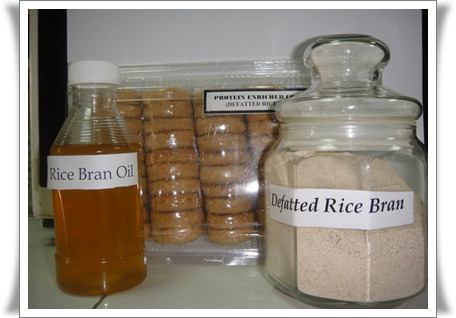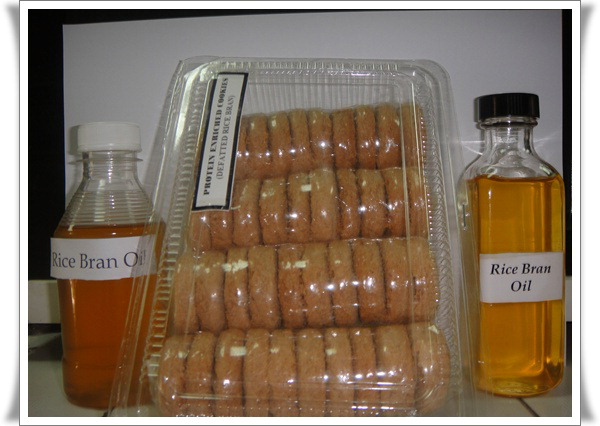|
Phase 4 (2009 Deadline)
Establishment of Functional and Nutraceutical Food Research Section at the National Institute of Food Science and Technology, University of Agriculture Faisalabad
Hang Xiao, University of Massachusetts
Masood Sadiq Butt, University of Agriculture Faisalabad (UAF)
Pakistani Funding (HEC): $123,086
US Funding (Department of State): $127,409
Project Dates: November 15, 2010 - November 14, 2013 (completed)
Project Overview
Functional foods are foods or dietary components that may provide a health benefit beyond basic nutrition, while nutraceuticals contain specific active compounds with potential health-promoting or disease-preventing effects. Functional foods and nutraceuticals currently represent a worldwide market valued at about $28 billion. However, Pakistan’s share of this market is very small due to inadequate research facilities and lack of sophisticated technologies and methodology. This project aims to create a well-equipped research center at the University of Agriculture Faisalabad (UAF) that will introduce modern techniques for extracting and analyzing bioactive components of interest from traditional and non-traditional crops as well as agricultural byproducts. Additional work will be done to test the effects of selected functional foods and nutraceuticals against various physiological threats. The project should not only enhance the research capabilities of food scientists and faculty members but also help to identify novel crops and food products that could be developed by the Pakistani agricultural and food processing sectors. Public outreach efforts will involve the organization of seminars and lectures to create awareness about functional foods and nutraceuticals and encourage farmers to consider cultivating nontraditional crops for such uses. UAF will also build on its existing strong contacts with the local food processing industry to disseminate their research findings for possible use in food and feed production.
Quarterly Update
As of September 30, 2013, the installation of equipment in the cell culture laboratory has been accomplished under Functional and Nutraceutical Food Research Section, National Institute of Food Science and Technology at the University of Agriculture, Faisalabad. On July 8-9, 2013, the project organized a two day training entitled “Handling and Working Protocols of cell Culture Study Equipment” at UAF to create awareness among the post graduate students about the use and operations of related equipment. Ms. Sandie Favier from French Embassy in Islamabad visited Functional and Nutraceutical Food Research Section and admired the work done by the research team. During last quarter, Pakistani PI Prof. Dr. Masood Sadiq Butt has successfully completed training on the health enhancing effects of selected food bioactive components in animal experimental models with special reference to their anti-carcinogenic effects against colon and lung cancer (In vivo studies), in the Department of Food Science, UMASS, USA under the guidance of Dr. Hang Xiao.
Progress Reports
Show all progress summaries | Hide progress summaries
2011 Show summary || Hide summary
During the summer and fall of 2011, Dr. Butt and his team worked to analyze plant raw material samples they had previously collected. They completed compositional and mineral profile analyses, as well as assays to determine total polyphenol contents (TPC), free radical scavenging activity (DPPH), and antioxidant activity. At the 1st National Conference on Setting Standards for 21st Century Pakistan in Islamabad on May 25, 2011, they displayed samples of functional foods incorporating some of the raw materials they are studying, including rice bran oil and rice bran-enriched cookies. A one-day seminar on functional and nutraceutical foods was also organized at UAF on August 13, attracting researchers and students from nine other universities and institutes from across Pakistan. With advice from Dr. Xiao, Dr. Butt has purchased the main piece of equipment being added to his lab thanks to this project, a supercritical fluid extractor, and he expects it to arrive in late fall 2011. In the meantime, he visited UMass from September 9 to 28, 2011, to gain experience in cell culture techniques and learn more about the research under way at the university’s Center for Foods for Health and Wellness. Once the new equipment is installed in his lab, trials can begin with the aim of separating out nutraceutical components of interest for further testing. Two junior research associates selected by Dr. Butt have started work at UAF and will be sent to Dr. Xiao’s lab for training after they obtain their visas. Also involved in the project at UAF are four PhD scholars, six Master’s students, and three lab technicians. The project has already attracted favorable mention in one of Pakistan’s leading English dailies (Dawn, April 11, 2011), a Pakistani business journal (Business Recorder, August 17, 2011), and several Urdu-language newspapers.
On November 14-16, Dr. Butt and his PhD scholars presented their paper on functional and nutraceutical foods at the International Conference on Emerging Issues in Food Safety in Faisalabad. On November 16, 2011, US Ambassador Cameron Munter visited UAF to participate in the inauguration of the new Functional and Nutraceutical Research Section that has been created as part of this project. The new supercritical fluid extraction system, a key piece of equipment in the research section, has been installed, and Dr. Butt and his colleagues and students have extracted and analyzed various active food compounds. As part of their research, cell culture techniques may play an enhanced role, so in this context, one of Dr. Butt's research associates participated in a training course held at the University of Veterinary and Animal Sciences in Lahore in late November 2011.
In 2011, Dr. Butt has also launched an Academia-Industrial Cooperation Program to build linkages with industry. As part of this effort, an official from Saffron Pharmaceuticals (Pvt) Limited visited the Functional and Nutraceutical Research Section on December 19, 2011, with Dr. Butt and his students paying a follow-up visit to Saffron on December 29.
2012 Show summary || Hide summary
Since the new supercritical fluid extraction system was installed in Dr. Butt’s lab at UAF in late 2011, he and his students have been using it to extra active compounds from various food materials, including garlic, citrus peel, flax seed, ginger, onion, rice bran, black cumin, and green tea. These active compounds have been analyzed using high-pressure liquid chromatography, and studies are being carried out using rodent models to determine potential effects that might be helpful in lowering blood sugar or cholesterol levels. Additional equipment such as a biological safety cabinet and CO2 incubator is on order pending receipt of the Year 2 funds from HEC. Dr. Xiao has also arranged the transfer of human cancer cell lines to Dr. Butt to enable him and his team to establish cell culture capacity and protocols at UAF.
In February 2012, one of Dr. Butt’s research associates presented his PhD seminar on the topic “Onion: nature protection against physiological threats.” That same month, one of Dr. Butt’s students defended his PhD thesis on “Probing the health claims of garlic using rodent experimental modeling.” Two other Pakistani PhD students have started six-month training visits to the University of Massachusetts under the supervision of Dr. Xiao, with additional support provided from HEC’s International Research Supportive Initiative Program. Dr. Butt himself has begun a four-month visit to UMass on April 23, 2012, with a special focus on gaining more expertise relevant to the cell culture components of this joint study.
In April 2012, one of the Pakistani research associates working on the project at UAF defended his PhD synopsis, which was entitled "Functional and nutraceutical modeling of promising herbs to attenuate metabolic syndromes." In May, a research article entitled "Aqueous garlic extract attenuate hypercholesterolemic and hyperglycemic perspectives: rabbit experimental modeling" has been accepted for publication in the Journal of Medicinal Plant Research. Five Pakistani M.Sc. students under Dr. Butt's supervision are expected to submit their theses related to research activities on the project in August-September 2012. In the meantime, the research teams on both sides have continued working to develop different functional and nutraceutical food products using extracts from selected raw materials. At UAF, research trials are under way on normal, hypercholesterolemic, and hyperglycemic rats to probe the cholesterol- and glucose-lowering potential of indigenous Pakistani raw materials. Once the second grant installment is received from HEC, Dr. Butt expects to purchase additional cell culture equipment to augment the infrastructure at his lab. He is currently on a four-month visit to the University of Massachusetts (April-August 2012) for training on cell culture study under the guidance of Dr. Xiao. After he returns home, he and his group will be organizing a two-day training course at UAF in September 2012 on the use of supercritical fluid extraction techniques to extract functional and nutraceutical food components.
2013 Show summary || Hide summary
Both labs continue to isolate, identify and characterize bioactive compounds found in foods such as black cumin, green tea, citrus peel, rice bran, flax seeds, garlic and onion that have potential health therapeutic effects. Using extracts of these raw food materials, new nutraceutical products were tested in designer foods such as pizza base, garlic dip, beverages, and baked goods to assess their specific metabolic effects. A three day training course was held on October 20-22 entitled “Supercritical Fluid Extraction Technique: Isolation of Functional & Nutraceutical Food Components” to enhance awareness about supercritical fluid extraction technique. About seventy participants from various academic and research organizations attended this training. Two PhD scholars, Mr. Ali Imran and Ms. Ambreen Naz, completed their cell culture study at Dr. Hang Xiao’s lab at the University of Massachusetts, Amherst and submitted their theses on “Chemical profiling of black tea polyphenols for associated health claims” and “Extraction and characterization of water melon lycopene to attenuate life style disorders”, respectively, for the award of Ph.D. degree. Moreover, eight M.Sc. (Hons.) students will submit their thesis related to the project.
Plans for establishing a cell culture facility at Faisalabad Functional and Nutraceutical Food Research Section is proceeding with the pending procurement of equipment such as a biological safety cabinet, microscope, humidifier and incubator and materials. An advanced imaging system (ODYSSEY® CLx) was recently purchased for Dr. Hang Xiao’s lab which will be used for training of Pakistan scientists. Prof. Dr. Masood Sadiq Butt will travel at the end of April to the Department of Food Science, UMASS to receive training onanticancer perspectives of various nutraceuticals using animal modeling. A MoU was signed between Dr. Butt’s lab with NutraAllied and Care Marketing, Pakistan to develop collaboration for further research advancement and dissemination of knowledge related to the project.
|
 
Samples of raw materials the project team is studying (i.e. rice bran oil, defatted rice bran, and rice bran-enriched cookies). Photo courtesy of Dr. Hang Xiao.
|
Back to Pakistan-US Science and Technology Cooperation Program Phase 4 Grants List
|
|
|
|





